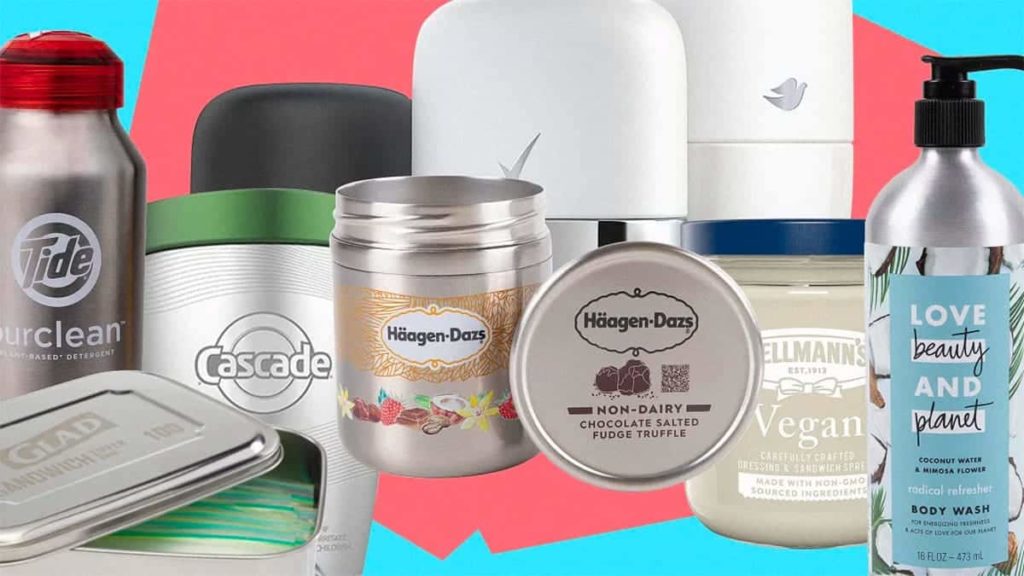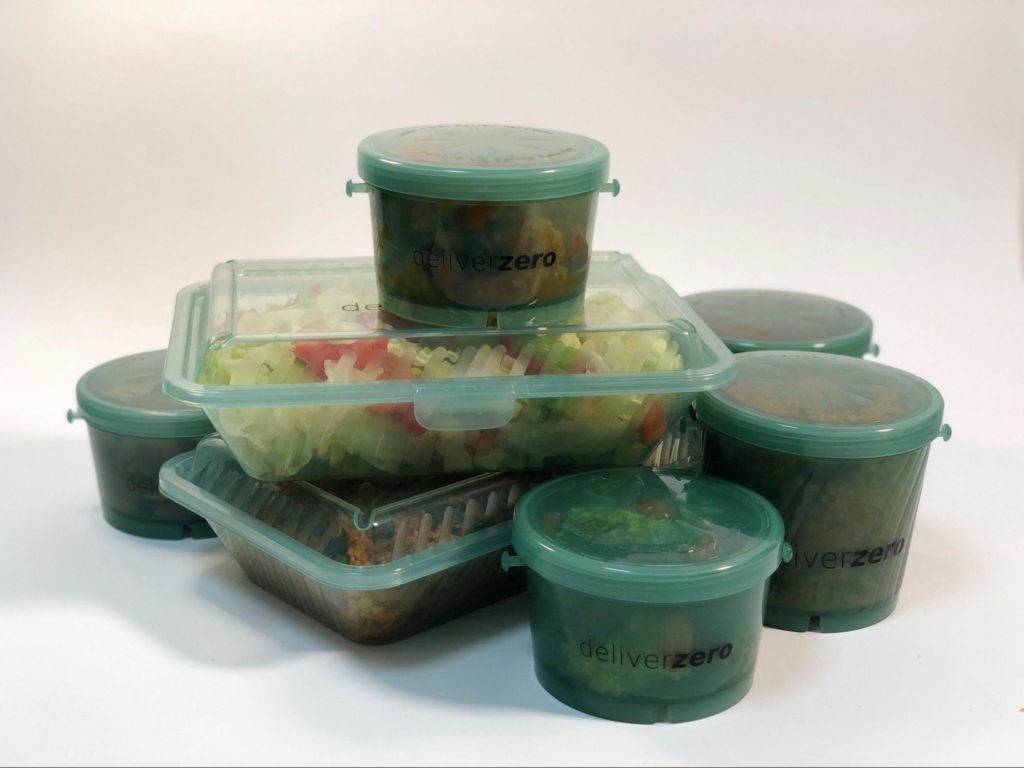
Image from theecobahn
I’m sure you are aware of the recent draft proposal to prohibit the use of certain single-use plastics. At the moment checkout bags, cutlery, food service ware, plastic ring carries, stir sticks and straws are all included in the draft. This is an awesome first step but we are aiming for more! We think they are missing some key items off this list, including, plastic beverage containers, plastic-lined single-use coffee cups and produce and meat bags. If this proposal is successful it’s going to have a significant impact on various industries and many businesses are going to have to rethink their ‘to-go’ packaging and shift to reusable packaging.
Reusable systems are such an important factor in addressing our plastic pollution problem. Pre- pandemic there was some real progress being made in this area. Coffee shops are a brilliant example of this where you could take your reusable cup and cut down on single-use coffee cups (the majority of which can’t be recycled). In doing this, not only would you be minimizing your plastic footprint, you might even get a small discount on your coffee. However when the pandemic hit, and ‘stop the spread’ was all we were concerned with, this put a stop to reusable options. At the time, preventing people from using their own containers seemed like a great measure for reducing the spread of Covid, but fast forward to today and spreading Covid via touch isn’t as big of a concern as we first thought. In fact, it’s widely stated that reusable systems can be used safely by employing basic hygiene. So let’s take a look at some of the different reusable models that are being used all over the world today.
Deposit Scheme


Let’s start with something that we are all familiar with, deposit schemes. In Germany they have been having great success with their deposit scheme for recyclables that they are stepping it up a notch and introducing this idea for reusables. From 2023, restaurants and cafes in Germany will be required to offer takeaway food and drink in reusable containers. This reusable system, RECUP and REBOWL, relies on a deposit scheme and consumers can return containers to over 5,000 dispensing points, offering an uncomplicated reusable option throughout Germany.
QR Code Accountability


Image from digitaldm
Small chains like Tiffin in Philadelphia are building loyalty with reusable containers that can be returned to delivery drivers with the next order. The chain developed a system using QR codes for tracking the containers. Customers can select the reusable option when they order online. The order generates a label with a QR code that goes on the container, they then have four weeks to return the containers to the store or any approved location (Tiffin is working on partnerships to create more drop-off points throughout the city). Alternatively, customers can simply give the used containers to the delivery driver the next time they order. If the containers aren’t returned the customer is charged $3.50. There is also a reward scheme in place, customers who choose the reusable option earn rewards toward discounts so there is a strong incentive to choose reusable.
The only barrier to more businesses going down this route is that the up-front costs are significant. On average, Tiffin spends about $3 per container. However, they estimate that using a container 18 times essentially covers the cost by reducing the chain’s need for single-use packaging.
Third Party Providers


Image by greenmatters
DeliverZero, a New York City-based third-party delivery provider, provides participating restaurants with reusable packaging, which helps to overcome the barrier of restaurants significantly increasing their cost to buy reusable containers. Customers order takeout or delivery through the DeliverZero app or website and the food is delivered in reusable containers. DeliverZero tracks the numbers of containers used per order, and they can be returned to participating restaurants, or to the delivery drivers on their next order, where they are washed and sanitized. If the containers don’t get returned, guests are charged a small fee per item.


Image from twitter
A company called Loop is making waves in the reusable container movement. Loop is a global reuse platform that aims to eliminate waste. Not only are they working with restaurants and fast food industries, they are working with major brands and retailers all over the world enabling refillable versions of their single-use products, creating a circular system rather than a single-use one. So how does this work in real time? Take Tim Hortons here in Canada (one of Loops many partners). When you head into a participating Tim Hortons you will receive your order in reusable packaging. You will pay a deposit for your packaging and this deposit will be returned when you return the packaging. This packaging is then collected, cleaned by Loop and returned to the retailer. Again, another familiar concept to what we have already seen. Where Loop stands out is the other markets that they are tapping into. For example Loop has partnered with Tesco, a major UK grocery chain. It’s a similar concept where products are packaged in reusable containers that customers pay a deposit for. Once the packaging is returned Loop will collect, clean and return it to the manufacturers in order for it to be refilled and sent back to Tesco ready for it to be put back on the shelves. The reason why Loop is a leader in the reuse movement is not only due to their huge reach globally but because they are building on a system that we are already familiar with and doesn’t really require any extra effort from us as consumers. Loop is offering us a way to create a circular economy through reusable items whilst maintaining the convenience and affordability that we’ve come to enjoy with a throw-away lifestyle.
Charges


Image from gov.uk
We’ve already seen charges as an incentive in some of the above examples but it’s definitely something worth discussing in its own right. Humans have an aversion to loss, for example, saying that something is going to save you $0.25 cents doesn’t have as big an impact as saying something is going to cost you $0.25 cents. Take a look at the UK – when they introduced the plastic carrier bag charge they saw a 95% reduction in the number of bags used! Smaller local businesses could especially benefit from charging a small fee for choosing a non-reusable option or for not bringing your own reusable container. This may encourage customers to rethink their choices and the money from the charges could go towards buying more reusable options.


Image from treadingmyownpath
We are seeing new and innovative ways in which companies and governments are trying to crack down on single-use plastics all over the world, but there are definitely some similarities between systems. Deposit schemes are definitely not a new concept but they are certainly becoming more popular with the reusable ‘to-go’ movement. Especially when combined with consumer accountability like QR code tracking, incentives for opting in and deterrents like charges. Humans are creatures of habit, we naturally take the path of least resistance and, I know it sounds ridiculous, if we can minimise the effort on our part then whatever system is implemented is more likely going to be successful. Think about it, what’s the likelihood of getting food whilst on the go, and then holding on to your packaging until you get home in order to wash and then recycle it? More often than not this is thrown into the garbage or the recycling bin wherever you are. We know that food can be a contaminant in recycling bins, so we aren’t actually doing any good. If however, we bought a Loop approved container, and there was a Loop bin out on the street, we know that these containers are going to get washed and delivered back to wherever we bought it from. As consumers we don’t really have to change our behaviour at all and we are able to cut down on single-use plastics.
Another point to consider is that this change in legislation is really going to hit the restaurant and take out industry the hardest, especially smaller local businesses as it’s not going to be cheap to replace single-use containers with reusable ones. Third party companies like DeliverZero and Loop can really make a big difference in this area. We, as consumers, still have to be mindful of the choices we make and we need to be just as active in this movement by making the right choices. Help out your local business and take your own containers so they don’t have to buy more and we can work together towards an economy free from single-use plastics.
